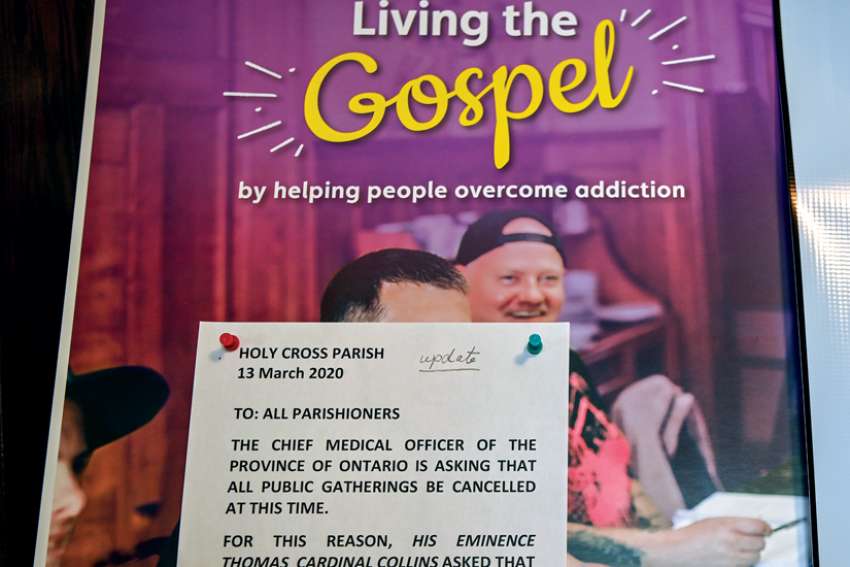So far, donations have continued to arrive despite COVID-19, but at a slower pace than past years, said ShareLife executive director Arthur Peters. Parishes in the Archdiocese of Toronto are still receiving envelopes from donors, credit card donations are coming in and more than 1,000 people have made pre-authorized gifts to ShareLife. That’s good news to the more than 40 agencies serving those in need every day, “agencies (that) are doing frontline work right now,” said Peters.
That never stops, and some are seeing more need with the economic impacts of COVID-19 that has the country almost in a virtual lockdown.
But the cancellation of Sunday Masses is expected to impact ShareLife’s bottom line. The first of three ShareLife Sundays was scheduled for Masses March 29. This special collection typically raises about $3 million, said Peters. The dollars might not be there, yet the need doesn’t go away.
To counter ShareLife’s expected donation shortfalls, Peters said the agency is reaching into its reserves to fund agencies and has even resorted to borrowing to fund operations. It’s not ideal, said Peters, but it’s the new reality of the charitable fundraising arm of the archdiocese.
In the long run, to reach its $15.65 million goal from its parish, school and corporate campaigns, Peters said some adjustments will have to be made. The ShareLife Sunday schedule will need to be revised and the campaign may end up being extended.
“We have to look at all our options,” said Peters. “That’s something that will have to be determined when that time comes.”
St. Michael’s Homes, one of the agencies ShareLife funds, aids people who have mental health issues or are recovering from addictions and need continued support on the path to recovery. So far, COVID-19 restrictions have led to a few program adjustments, said executive director Robin Griller, but for the most part things are operating normally, or as close to normal as possible.
“So far, so good,” said Griller. “But it’s changing fast.”
In the short term, Griller said financing remains stable. Half of its funds come from the Ontario Ministry of Health and he’s had no indication that is in any way threatened. ShareLife and Catholic Charities of the Archdiocese of Toronto provide almost 25 per cent of its funding, and again, short term that is stable.
But should the crisis linger, he worries that might not remain the case. “That is quite vulnerable,” said Griller. “Every year funding is based on the campaign, and what just started? The campaign.”
Like all charities, St. Michael’s Homes has the reserves on hand to carry on for several months.
“At this point we are going as if all is going to be OK,” Griller said. “But it all depends on what happens. The biggest risk is probably the ShareLife campaign.”
Meantime, Peters is encouraging donors to access the many ways ShareLife continues to accept funds. These options can be found at sharelife.org.


